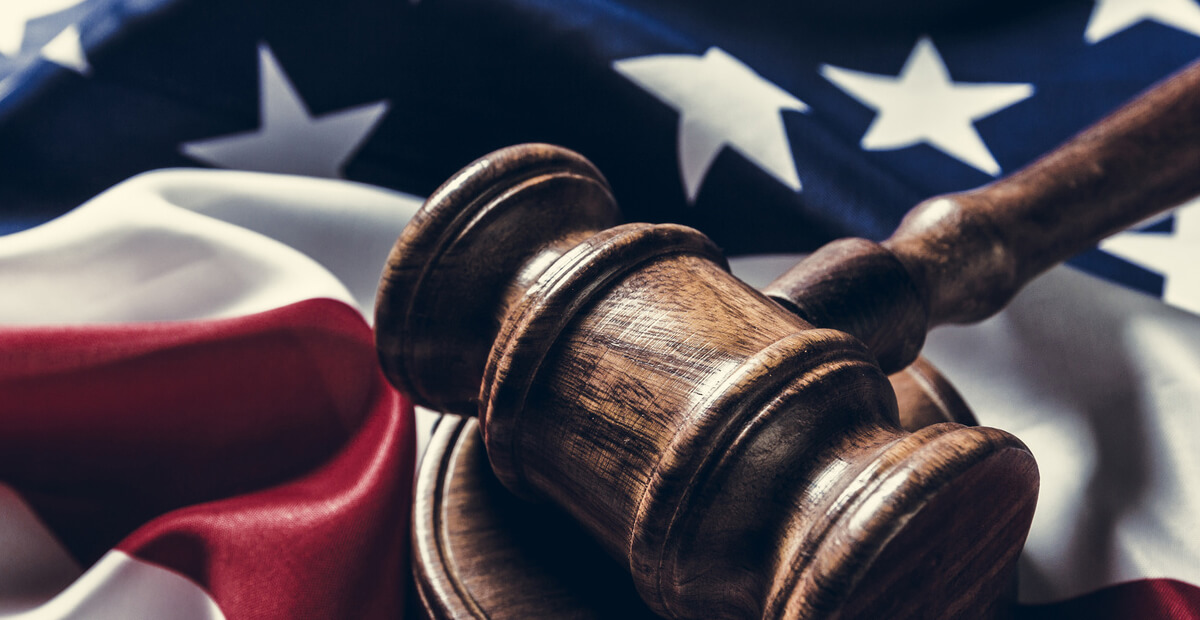The National Defense Authorization Act (NDAA) for Fiscal Year 2023 (FY23) was signed by the President on December 23, 2022. The FY23 NDAA brought about changes that can affect the practice of military law as well as other areas such as family law, criminal law, and trusts and estates. Two of the most impactful changes will affect the Survivor Benefit Plan (SBP) and the COVID-19 Vaccine Mandate. The FY23 NDAA also brought about changes to the Uniform Code of Military Justice (UCMJ), tilting actions, Inspector General complaints, and a few other changes.
SBP is a benefit afforded to spouses and dependents of military retirees to ensure a continuous annuity based on the pension earned by the service member if the service member dies first. It is an insurance plan that will pay a surviving spouse and/or others monthly to compensate them for the pension the service member earned. The premium is paid from the gross retired pay, so it does not count toward income. SBP is a small but important area of law that has long-term effects, especially in family law. The FY23 NDAA requires an open enrollment period for the plan, which is the first time in over a decade. The open enrollment period is open now until January 1, 2024. A retiree will be able to make changes as well as enroll a beneficiary in the plan. Any changes will be effective as of the first day of the month following the election. However, a change may require backpay for the premiums from the first day a beneficiary would have been eligible. As of right now, the Defense Finance Accounting Service (DFAS) is still working through the policies, procedures, and forms before accepting any enrollments or changes. This is just one of many significant changes outlined in the FY23 NDAA.
The FY23 NDAA also directed the rescinding of the COVID-19 vaccine mandate for service members. Recently, the Secretary of Defense put forth a memorandum stating all negative paperwork associated with a service member that solely refers to the COVID-19 vaccine only will be removed from the service member’s record. The FY23 NDAA does not require the removal of bad paper from the personnel files of veterans and former service members. Those individuals are required to petition their respective board for the correction of military records. The Secretary of Defense recently directed that if a service member received a discharge of Other Than Honorable, the discharge would also be upgraded to at least General. Additionally, any Department of Defense (DOD) contractors will have the COVID-19 vaccine mandate temporarily suspended.
The military justice system will also undergo some minor charges. The FY22 NDAA required some changes to the military justice system regarding sexual harassment/assault claims. This year’s NDAA will provide additional covered offenses to those over which the Office of Special Trial Counsel will exercise authority, requiring the President to amend the Manual for Courts-Martial to ensure that residual prosecutorial and judicial duties with respect to covered offenses are transferred to an appropriate entity, and requiring comprehensive reporting from the DOD regarding implementation of the FY22 NDAA changes. Article 66 of the UCMJ will be amended to authorize judicial review of any conviction by court martial, regardless of the sentence imposed. Additionally, Article 69 will be amended to clarify the scope of review in general and special court-martial cases reviewed by a Judge Advocate General. Finally, Article 25 will be amended to require the random selection of personnel to serve as panel members on courts-martial under regulations prescribed by the President. Titling for criminal investigations will undergo some changes as well.
A service member is “titled” when the military’s criminal investigation elements (NCIS, OSI, and CID) enter the service member’s name in the title block of a criminal investigation report. This is not a judicial decision but rather an administrative procedure. Currently, titling requires credible information that the service member committed the offense, a much lower standard than the previous probable cause standard. This is vastly different from a criminal conviction, which requires proof beyond a reasonable doubt. Once titled, the titling action will appear on an FBI background check of a service member/veteran and make it appear as if he or she was arrested or convicted of an offense when no such conviction ever took place. Once titled, removal not only becomes difficult, but many service members never know a titling action was taken against them. The FY23 NDAA now requires the investigatory bodies to notify any service member who was the subject of investigation, the crime investigated for, and how a service member may seek removal from being titled. The FY22 NDAA also provided guidance to agencies about removing titling. In order to remove the titling, a service member or veteran will have to request the investigating agency remove their name or factual inaccuracies from the record of titling. If the request is denied, the service member or veteran will have to request relief from the Board for the Correction of Military Records.
Some other more minor changes that may affect the legal field are: (1) allowing a service member whose sole dependent dies to continue to receive a basic allowance for housing at the “with dependents” rate for a period up to 365 days after the death of the dependent; (2) a 4.6 percent pay raise; (3) establishing a Cold Case Unit in the Army (the Department of the Navy and Air Force already have one); and (4) the DOD will provide a report about potential changes to marijuana-based offenses, which could bring about a major change for those discharged based on a marijuana charge in the past.
Congress passed the FY23 NDAA, but there could be other changes based on the interpretation provided by the Secretary of Defense and further guidance from Congress. One subject that many expect further clarification on involves veterans who were separated or punished based on not receiving the COVID-19 vaccine and what they can do to correct their records.
Chad Lennon is an attorney in the military law practice at Tully Rinckey PLLC and a Major in the Marine Corps Reserve. Concurrently, he is the Co-Chair of the New York State Bar Association Committee on Veterans, Co-Chair of the Suffolk County Bar Association Committee on Military and Veterans Affairs, and is an Officer for the Suffolk County Bar Association Academy of Law. He can be reached at (888)-529-4543 or at info@tullylegal.com.








